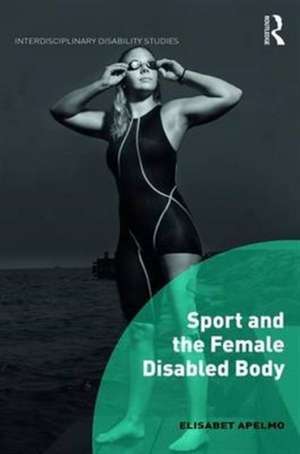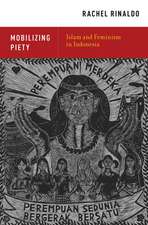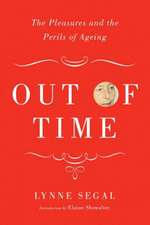Sport and the Female Disabled Body: Interdisciplinary Disability Studies
Autor Elisabet Apelmoen Limba Engleză Hardback – 6 oct 2016
Finally, the author discusses the paradox of gender. Disabled bodies are often seen as non-gendered, however, these young women’s experiences are structured by both the gender regimes within sports and the larger gender order of the society.
Din seria Interdisciplinary Disability Studies
- 5%
 Preț: 295.84 lei
Preț: 295.84 lei -
 Preț: 377.20 lei
Preț: 377.20 lei - 5%
 Preț: 295.94 lei
Preț: 295.94 lei - 5%
 Preț: 309.13 lei
Preț: 309.13 lei -
 Preț: 303.94 lei
Preț: 303.94 lei -
 Preț: 303.89 lei
Preț: 303.89 lei - 5%
 Preț: 286.92 lei
Preț: 286.92 lei - 5%
 Preț: 288.70 lei
Preț: 288.70 lei -
 Preț: 317.54 lei
Preț: 317.54 lei - 5%
 Preț: 1160.66 lei
Preț: 1160.66 lei - 18%
 Preț: 1000.30 lei
Preț: 1000.30 lei - 5%
 Preț: 357.50 lei
Preț: 357.50 lei - 17%
 Preț: 312.13 lei
Preț: 312.13 lei - 25%
 Preț: 767.57 lei
Preț: 767.57 lei - 5%
 Preț: 1157.96 lei
Preț: 1157.96 lei - 28%
 Preț: 817.87 lei
Preț: 817.87 lei -
 Preț: 368.43 lei
Preț: 368.43 lei - 5%
 Preț: 355.13 lei
Preț: 355.13 lei -
 Preț: 375.78 lei
Preț: 375.78 lei -
 Preț: 379.81 lei
Preț: 379.81 lei -
 Preț: 478.71 lei
Preț: 478.71 lei - 12%
 Preț: 305.97 lei
Preț: 305.97 lei - 24%
 Preț: 241.72 lei
Preț: 241.72 lei -
 Preț: 391.13 lei
Preț: 391.13 lei - 12%
 Preț: 331.98 lei
Preț: 331.98 lei - 18%
 Preț: 1002.63 lei
Preț: 1002.63 lei - 5%
 Preț: 1158.69 lei
Preț: 1158.69 lei - 5%
 Preț: 1160.70 lei
Preț: 1160.70 lei -
 Preț: 368.27 lei
Preț: 368.27 lei - 19%
 Preț: 256.67 lei
Preț: 256.67 lei -
 Preț: 368.81 lei
Preț: 368.81 lei - 5%
 Preț: 1286.84 lei
Preț: 1286.84 lei -
 Preț: 389.43 lei
Preț: 389.43 lei - 5%
 Preț: 370.13 lei
Preț: 370.13 lei - 5%
 Preț: 1154.86 lei
Preț: 1154.86 lei -
 Preț: 384.22 lei
Preț: 384.22 lei
Preț: 818.28 lei
Preț vechi: 1139.53 lei
-28% Nou
Puncte Express: 1227
Preț estimativ în valută:
156.58€ • 167.44$ • 130.55£
156.58€ • 167.44$ • 130.55£
Carte tipărită la comandă
Livrare economică 17 aprilie-01 mai
Preluare comenzi: 021 569.72.76
Specificații
ISBN-13: 9781472455147
ISBN-10: 1472455142
Pagini: 166
Dimensiuni: 156 x 234 x 15 mm
Greutate: 0.36 kg
Ediția:1
Editura: Taylor & Francis
Colecția Routledge
Seria Interdisciplinary Disability Studies
Locul publicării:Oxford, United Kingdom
ISBN-10: 1472455142
Pagini: 166
Dimensiuni: 156 x 234 x 15 mm
Greutate: 0.36 kg
Ediția:1
Editura: Taylor & Francis
Colecția Routledge
Seria Interdisciplinary Disability Studies
Locul publicării:Oxford, United Kingdom
Cuprins
1. Introduction 2. Theoretical Framework and Methodological Considerations 3. ‘I Am Just Like Everyone Else’ 4. Bodily Experiences 5. Technology, Gender and the Body 6. Sporting Bodies and Gender 7. Final Discussion
Notă biografică
Elisabet Apelmo is Lecturer in the Department of Social Work at Malmö University, Sweden. She is a visual artist with a PhD in Sociology.
Recenzii
'This book applies phenomenology to a much understudied area—that of women with disabilities in sport. The book interrogates the role that gender plays across political, social and sporting domains while also deepening our understanding of the physicality of the human body and insights into the feminist mind.' - Anjali J. Forber-Pratt, Vanderbilt University, U.S.A and Two-time U.S. Paralympian
‘What a gem! The book offers an evocative and theoretically insightful account of sporting women and disability. The content covered is expansive, topical, and clear. Riveting to read, brimming with rich qualitative data and ideas, it fills an important void in the field.’ - Brett Smith, University of Birmingham, UK
'This book applies phenomenology to a much understudied area—that of women with disabilities in sport. The book interrogates the role that gender plays across political, social and sporting domains while also deepening our understanding of the physicality of the human body and insights into the feminist mind.' - Anjali J. Forber-Pratt, Vanderbilt University, U.S.A and Two-time U.S. Paralympian
‘What a gem! The book offers an evocative and theoretically insightful account of sporting women and disability. The content covered is expansive, topical, and clear. Riveting to read, brimming with rich qualitative data and ideas, it fills an important void in the field.’ - Brett Smith, University of Birmingham, UK
'This book must be welcomed as a very important contribution to the discussion of sport, gender and disability. And to take it further, the study gives inspiration and impetus to an interesting and required discussion of what elite disability sport has to offer women with disability, in terms of finding themselves as valued subjects and females in their own right, being the bodies they are.'
-Anne-Merete Kissow, Nordic Sports Forum
‘What a gem! The book offers an evocative and theoretically insightful account of sporting women and disability. The content covered is expansive, topical, and clear. Riveting to read, brimming with rich qualitative data and ideas, it fills an important void in the field.’ - Brett Smith, University of Birmingham, UK
'This book applies phenomenology to a much understudied area—that of women with disabilities in sport. The book interrogates the role that gender plays across political, social and sporting domains while also deepening our understanding of the physicality of the human body and insights into the feminist mind.' - Anjali J. Forber-Pratt, Vanderbilt University, U.S.A and Two-time U.S. Paralympian
‘What a gem! The book offers an evocative and theoretically insightful account of sporting women and disability. The content covered is expansive, topical, and clear. Riveting to read, brimming with rich qualitative data and ideas, it fills an important void in the field.’ - Brett Smith, University of Birmingham, UK
'This book must be welcomed as a very important contribution to the discussion of sport, gender and disability. And to take it further, the study gives inspiration and impetus to an interesting and required discussion of what elite disability sport has to offer women with disability, in terms of finding themselves as valued subjects and females in their own right, being the bodies they are.'
-Anne-Merete Kissow, Nordic Sports Forum
Descriere
This path-breaking book analyses young sporting women with physical disabilities and explores their experiences of living with a body which, on the one hand, is viewed as deviant – the disabled body – and on the other hand is viewed as accomplished – the sporting body.













